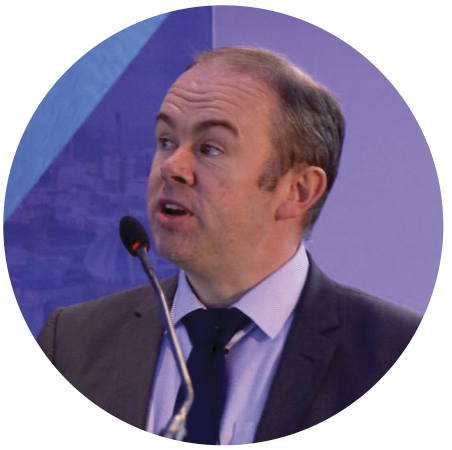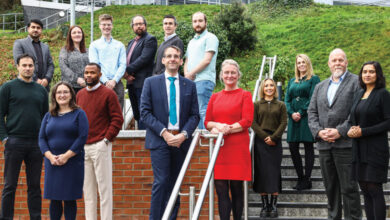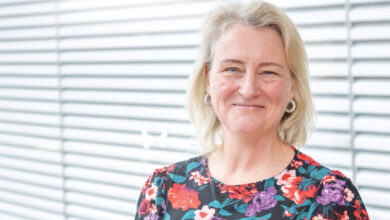A digital identity for healthcare

Dermot Boyle, Programme Manager at the Health and Social Care (HSC) Business Services Organisation (BSO), outlines the transformative potential of the Northern Ireland Digital Identity Service (NIDIS) and how this can shape healthcare delivery in the region.
 “The goal of NIDIS is simple yet ambitious: to link together every citizen’s healthcare record in Northern Ireland, creating a single, comprehensive view of each patient,” Boyle explains.
“The goal of NIDIS is simple yet ambitious: to link together every citizen’s healthcare record in Northern Ireland, creating a single, comprehensive view of each patient,” Boyle explains.
By consolidating disparate data from diagnostic systems, public health records, laboratories, pharmacies, and hospitals, NIDIS addresses a fundamental challenge: fragmented patient information.
Boyle emphasises the implications of this integration: “If a clinician treating you does not know that you broke your ankle years ago, it could lead to misinterpretation. A unified view ensures safer, more informed care.”
Central to this vision is the health and care number, the unique identifier underpinning NIDIS, which Boyle states “facilitates seamless data sharing across primary, secondary, and community care settings”.
Technology driving transformation
At its core, NIDIS is powered by a robust Oracle-based technology stack. “The master patient index (OHMPI) is the intelligence engine at the heart of the solution,” Boyle notes. Oracle tools like BPM for workflow management and APEX for agile application development enable rapid adaptation to changing needs. He highlights how this capability could have revolutionised past efforts: “Oracle APEX will allow us to quickly pivot and build future applications quickly.”
NIDIS processes 13,000 demographic updates and 14,500 API calls per day, supporting 9,000 patient record views and creating 140 new records each day as infants are born and people come to live in Northern Ireland. “This is not just about moving data around; it is about doing so with accuracy, speed and above all security” Boyle says, adding: “Patients do not only get sick between 9am and 5pm; our system must operate 24/7 with the same level of service in the middle of the night as you would expect in office hours.”
Building for resilience and growth
Boyle says the implementation of NIDIS has been no small feat. “When I joined BSO HSC in January 2020, I thought a population health index sounded like a relatively straightforward working environment, then Covid-19 changed everything.”
Amid the pandemic’s challenges, Boyle’s team launched the NIDIS programme alongside other critical system launched by the HSC like encompass, NIPACS+, NIPIMS alongside the various systems needed to mee the challenge of the pandemic, all of which rely on the foundation of NIDIS for demographic data.
Boyle’s insights underscore the strategic importance of robust identity systems. “NIDIS serves as the Grand Central Station of data exchange within HSC, all patient demographic data flows through NIDIES” he explains. By enabling a ‘tell us once’ approach, the system aims to streamline updates across all connected services. This reduces administrative burdens and improves patient experiences.”
Boyle also stresses the importance of planning for future needs. “We are expanding our dataset to include telecommunications details and refining gender data fields to reflect modern healthcare requirements and patient preferences,” he says.
By addressing both operational and social considerations, Boyle asserts that NIDIS is positioned as a model for inclusive, adaptive digital systems.
Enabling research and public health planning
Beyond improving individual care, NIDIS facilitates future strategic insights. For example, it could allow planners to identify aging populations within specific postcodes or to better target healthcare services for displaced populations like Ukrainian refugees. “This kind of data-driven planning is critical for addressing emerging public health needs,” Boyle emphasises.
The system also supports seamless integration across Northern Ireland’s complex healthcare ecosystem. With five health and social care trusts, Northern Ireland Ambulance Service, 320 GP practices, and a host of other entities, Boyle says that NIDIS ensures that all stakeholders have access to accurate, up-to-date information, describing the system as “a cornerstone of our transformation agenda”.
The road ahead
Looking forward, Boyle envisions further enhancements to NIDIS. Plans include:
- Primary care registration management: Streamlining processes for GP registration to reduce barriers for patients.
- Healthcare professional domains: Enhancing data to reflect clinicians’ roles across multiple settings.
- Improved matching algorithms: Increasing the accuracy of patient record linkages.
- Additional data sharing: Building more comprehensive datasets for research and policy development.
- “NIDIS is not just a project; it is a foundation for the future,” Boyle concludes, adding that the success of NIDIS offers a “powerful example” of how innovative identity systems can transform public services more broadly.





